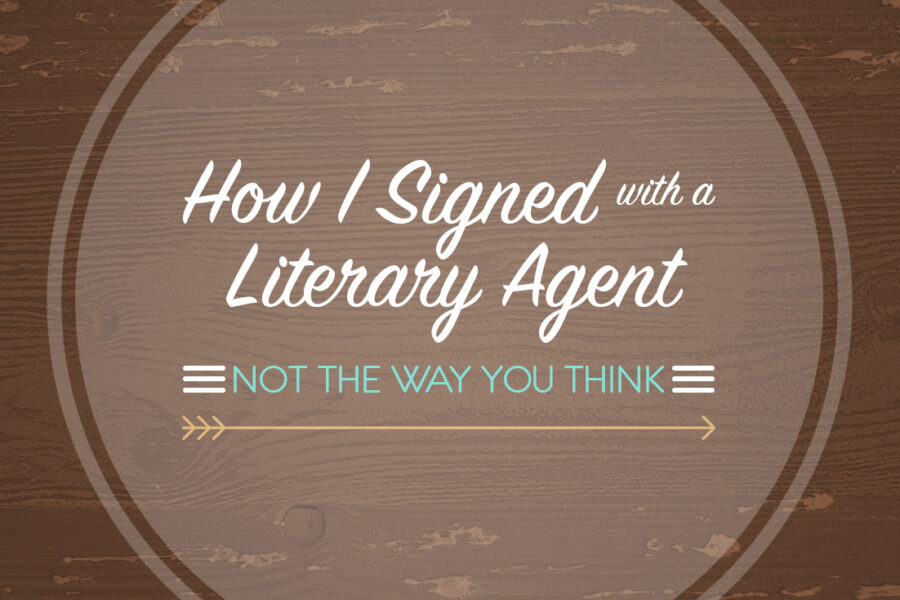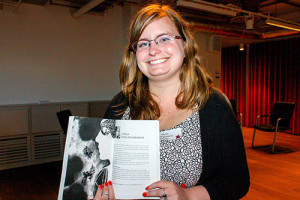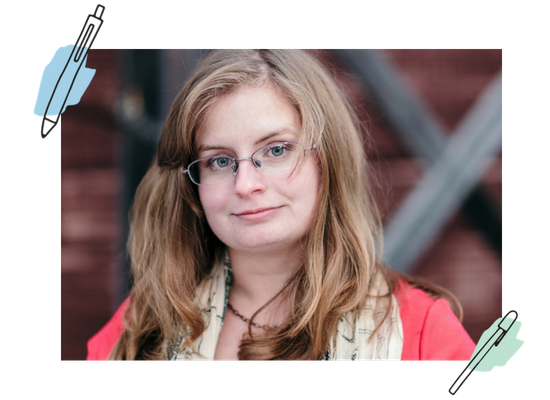Literary agent. Offers. First refusal. Revision. Contracts. Murder.
These are all words that could describe my journey to signing with an agent. (Except for that last one. I was just joking. Or was I?)
Readers of the blog might remember that I signed with Amber Caraveo of Skylark Literary back on December 16. But like all stories, it doesn’t actually begin there.
When most writers decide to go the route of traditional publishing, they start by querying literary agents. They send out a juicy story blurb, tantalizing first chapters, maybe a sexy synopsis (two words you never thought you’d see together). Eventually maybe an agent will be caught and a contract signed.
I’ve queried in the past myself, mostly back when I was nineteen and had finished my first complete manuscript. I received a lot of good feedback and some kind rejections (very kind, in retrospect). It was a positive experience because the life of a writer comes with a heavy dose of rejection – whether from agents, publishers, critics, or readers – and putting myself out there helped toughen my skin.
First Contact from an Agent (Or Three)
My quest with Illuminate was different from the norm because this manuscript was my MA thesis. I put an excerpt in our university’s yearly anthology and sent it off to some of the top dogs in the UK literary world.
Before and during the launch party, I was approached by three literary agents who’d been intrigued by my excerpt. I also pitched my way into two more requests for a full manuscript. Pitching is terrifying, by the way, and requires plenty of prep. I’m not saying that I hiked around Somerset with notecards of talking points, memorizing everything I could say with friend and co-conspirator Annie. But I’m not denying it.
Anyway, during the launch Amber introduced herself. I was immediately impressed by her enthusiastic personality and by how much she had noticed in my excerpt. After speaking with her briefly and passing her on to a classmate, a tutor from Bath Spa pulled me aside.
“Amber is interested?” she asked. Then she gave me a very knowing look. “You would do well with her.”
With that endorsement ringing in my head, I went through the next week in a frenzy of emails to and from agents. Another agent was really keen, and I still remember getting her offer of representation in my inbox during lunch in Northumberland.
It’s a courtesy to let other agents have a chance to make their own offers, so I descended into more madness as I gave everyone the head’s up. Some agents backed out, others (like Amber) asked for more time. In the end, it was between that first agent and Amber.
When Amber came back to me, she said that she loved my project but it was very rough. She offered to work with me on an editorial basis under a first refusal agreement. This meant that she would give feedback and I would make extensive revisions. At the end of it, we’d see how we worked together. If she wanted to make an offer, she could. If she didn’t, she didn’t have to. If we decided to part ways, I could take the manuscript elsewhere.
The Dramatic Choice
I had a choice: Sign with the literary agent who had made an offer, or put a lot of work into a less secure offer.
The first literary agent was absolutely lovely and has a really good track record. She thought my manuscript was already almost done.
But I knew in my gut that it needed the work Amber mentioned.
From early on in my writing life (read: age 12) I discovered that I’m not the most naturally gifted writer on the block. I had a few friends who could write circles around me, with beautiful grammatically correct sentences and imaginative prose. My drafts are riddled with mistakes from plotholes to typos. But that’s okay. I may not be the most talented writer to draw breath, but I can work hard. I like working hard.
So when Amber came back to me, her feedback aligned with what I knew about myself as a writer and about Illuminate. After frantic discussions with friends and mentors, I went with my gut. Taking longer and doing more work – even being less secure – wasn’t as important as making sure Illuminate turned out the best it could possibly be.
Insert Work Montage (to the tune of Take You Down)
Amber gave me six pages of feedback and a manuscript covered in notes. We discussed it in the British Museum, brainstorming through a few bumps, and then I returned to the drawing board.
Over the course of July, August, and September, I tore my manuscript to shreds. I started at the ending and worked my way backwards. I highlighted every single crutch word. I cut 30,000 words from the whole thing (a little over 100 pages for people who want that measurement). It was painful. It was awesome.
In October, I turned it back over to Amber and I waited. On December 16, we had a Skype meeting.
And she made an offer. And I accepted.
Huzzah!
UK vs. US Agents
I’ll just add a note for other writers reading this – as I’ve already been asked by a few – about why I (an American writer) have signed with a British literary agency.
When you sign with an agent, they get 15% for home sales from your book and 20% for international sales. In my case, this means that Skylark Literary gets 20% for sales in the US.
I’m still a newbie at all this, so I can only say what I think right now. While it might be a monetary disadvantage, there are a few reasons I’ve chosen to sign with Skylark anyway:
- I love working with Amber. We connect well and I’m confident that we can make a good partnership.
- Amber is an editorial agent, and that’s what I wanted. From what I can tell (I could be wrong!), there are fewer American agents who really work with their writers throughout the process. Feedback is a big motivator for me, so an editorial agent is the best fit.
- Similarly, Skylark is a very small and friendly agency that still has plenty of publishing experience. I like that they’re little but they pack a big punch.
- In this day and age, there really aren’t communication barriers. Sure, I can’t pop over to London for a chat. But I probably wouldn’t have been able to pop up to NYC either. Skype and email make us accessible to each other, and I’m very comfortable with both.
- Yes, I’ll be honest – another motivator was my huge investment into the UK side of things, between my degree and the anthology and the work I did with Amber. It would have been difficult to go back to the threshing floor and cold-query American agents.
- I love the UK and having an agent there gives me another excuse to visit.
Needless to say, I’m quite pleased with my decision. I’m already making plans to (fingers crossed) get over to London for the Skylark Christmas party next year! And in the meantime, I’ll be revising. And revising. And revising.
Oh, and sending Illuminate out to publishers. No biggie.

Disclaimer: Before I could write this blog entry, I checked with the aforementioned Annie to see if it was okay to talk about signing with an agent. Our conversation went thusly:
Me: Okay, I need you to check me for British Brain Syndrome. As I sat down to write about signing with Amber, I suddenly felt like it would be brash or something. But I always liked reading other writers’ stories about signing with their agents. Am I being reasonable or am I being British????
Annie: YOU ARE BEING BRITISH. DO THE ENTRY.
So I’m doing the American thing! George Washington, I hope you’re shedding a single tear of patriotic pride. Also, love what you did with Mt. Vernon. The ha-ha walls are a riot.


















